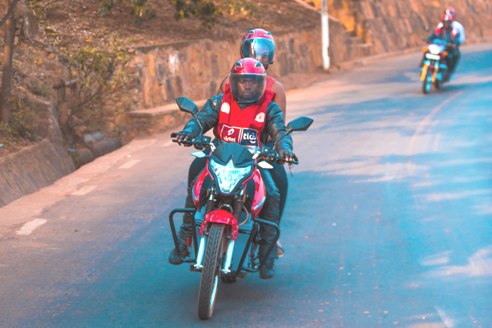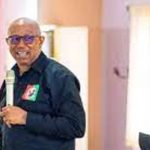Electric Replaces Petrol Powered ‘Okada’ In Rwanda, Kenya, Uganda. Why Not In Nigeria?

LAGOS DECEMBER 27TH (NEWSRANGERS)-Rwanda’s green mobility policy, aimed at phasing out petrol motorcycles, has been in effect for at least five years now. In Kenya, electric motorcycles are over a decade in operation. Uganda’s adoption of the innovation is recent, but in all, the trend highlights East Africa’s wokeness in anti-pollution and energy use.
It is not for nothing that an e-motorcycle startup ecosystem has exploded in the region. In Rwanda, e-motorcycle dealers Ampersand and Safi are overwhelmed by orders ahead of the planned phase-out. Kenya’s Ecobodaa and ARC Ride are launching soon to catch up with Bodawerk and Zembo in Uganda.
“Countries here leapfrogged landlines and went straight to cell phones, and leapfrogged conventional finance to go straight to mobile money,” Ampersand CEO Josh Whale recently told Bloomberg Green. “Now Africa’s growth is leapfrogging petrol to go to electric vehicles.”
Whale might need to be specific about what region on the continent: East Africa, where “big money is flowing into growing and stabilizing the electricity grid,” Bloomberg says. Already, renewable energy accounts for almost 90% of the energy supply in some countries in the region, according to the International Renewable Energy Agency.
Green technology adoption is growing in Kenya, where the government’s electricity producer has spent millions of dollars drawing geothermal energy from the volcanic Rift Valley. Kenyan logistics firms are also adopting electric bikes in January, buoyed by the new spirit and of course a reliable power supply base.
Nigeria’s absence from sincere green energy conversations perhaps mirrors an Igbo proverb: a parent whose son cannot dance like peers scratches a perpetual itch on the brow. One cannot talk of electric transportation without electricity.
East Africa’s roads are bursting with cheap petrol bikes, usually imported from India or China, polluting the environment with both noise and carbon. Electric bikes, on the other hand, are quiet, have lower repair costs, and can have their batteries replaced in just a few minutes.
“Ever since I started driving an electric bike, I’ve had more money to bring home gifts for my children,” Bloomberg cites Thacien Mbuzehoze, the first driver to buy a bike on a rent-to-own basis from Ampersand when it launched commercially last year. “Other drivers thought it was a gimmick. Over time, once I made more money, other drivers started approaching me to ask how I got it.”
Electric bikes, which have zero direct emissions, are also good news for the region’s air quality. In many cities, East Africa’s pollution is considerably above levels considered to be safe by World Health Organization. Air quality in Uganda’s capital Kampala is more than 10 times over the WHO’s safe level.
There are difficulties where electrification is low and regulatory policy is young. In 2018, Kenya’s president promised to steer the country toward 100% renewable energy consumption by 2020, but has yet to. In Rwanda where only half the population has access to electricity, the government’s aim to roll out access to everyone by 2024 remains a challenge.
There’s hope that electric-vehicle demand will also push governments to flood their grid supplies with renewable energy. Once it’s set up in Kenya, ARC Ride is planning to roll out electric vehicles in Rwanda, where it will hook them up to charging stations at solar mini grids built by ARC Power, its sister company. In the scorching equatorial sun, the batteries from solar panels are usually fully charged by 11am, so there’s always a huge surplus of battery power there to be used.
While Nigeria struggles with electricity supply, solar resource could probably be an alternative. Why then is the innovation not taking place in the country, at least in Lagos with high emission levels and a market for the business?
One easy guess is that Lagos is unwelcoming to okada even if powered by harmless spiritual forces. Leader of a riders’ association in the state who spoke to Nigeria Abroad has other ideas. “Silent okada for Lagos go cause plenty accident. Noise na part of our life. Even horn sef no reach.”
Short URL: https://newsrangers.com/?p=62565































